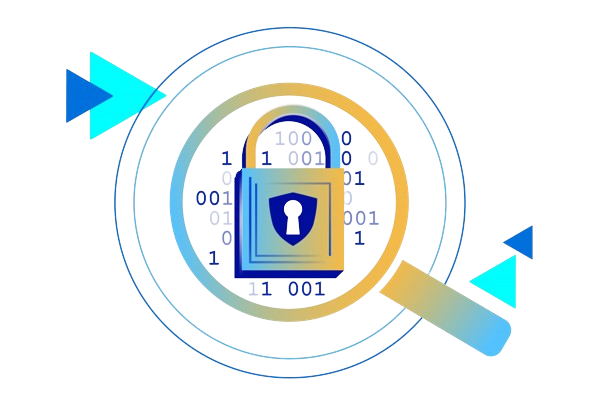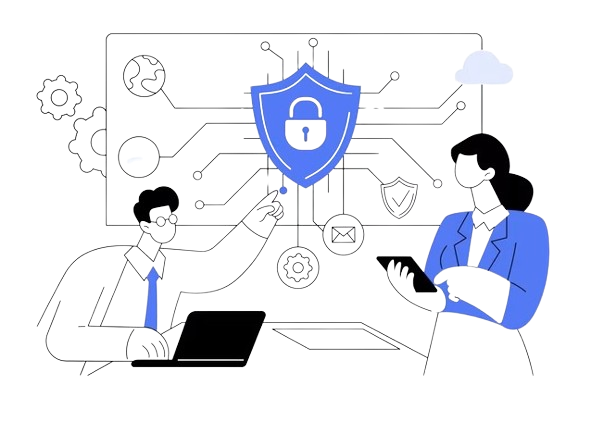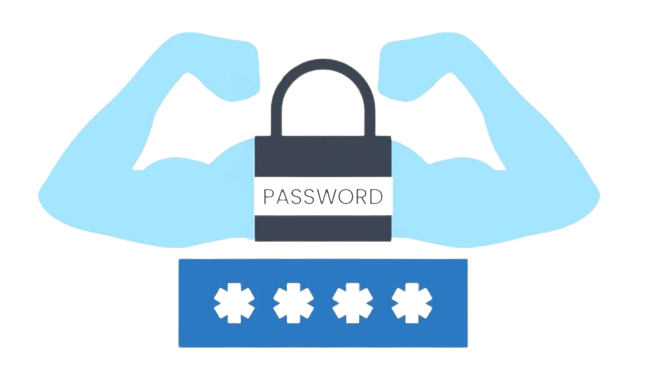Everyone relies on digital platforms for communication in today’s digital era, and it’s becoming an integral part of our daily habits, especially in today’s fast-paced economy. When online communication is shared freely, it’s also easier to encounter an attack.
These attacks can later lead to reputational damage, harm client relationships, and stagger the process of complying with legal processes.
In this article, we’ll explore what you can do to safeguard confidential communication on digital platforms.
Implement Click Fraud Protection Strategies

Click Fraud occurs when someone clicks on an ad or link to try to influence traffic rankings and statistics on a larger scale. It’s a subset of ad fraud in which someone clicks on a pay-per-click (PPC) ad without having any intentions of buying a product or signing up for one.
Fraudsters will commit click fraud since they want to take all the profit an advertiser makes and keep it to themselves. Click fraud is a nightmare for publishers, eventually ruining relationships with advertisers.
Now that you know what click fraud is, it’s time to identify and protect yourself from it by tracking these variables:
- Click-to-time ratio: If there’s a large number of clicks within a short period of time.
- Action timestamp: Whenever there’s an ad click immediately when someone enters the website.
- IP Address: If there’s a large number of clicks coming from the same IP address.
Click fraud is a serious problem that can harm your confidential information, but it’s easier to identify when tracking the right variables.
Encrypt Your Data

The key to secure communication is encrypting your data. All private community platforms offer encrypted communication channels, protecting conversations of customers, and all the files shared amongst them. 42% of respondents to a survey claim that they use data encryption for customer data.
Data encryption makes sure that the conversation remains private and can’t be intervened by any external actors. The good part about data encryption is that even if someone does gain unauthorized access to your data, they still won’t be able to decode it without an encryption key.
Each conversation will have a special encryption key that is used with a cryptographic algorithm to protect data. If fraudsters get a hold of the key, it won’t be valuable anymore, so data encryption is important.
Use Secure Communication Tools

Using secure messaging apps is becoming a priority for more companies. They want to make sure that the best communication experience is carried out by employees and managers at the highest security level.
To make sure your communication apps are protected at the maximum level, you need to check for the following:
- End-to-end encryption: This makes sure that no third party is involved in a conversation between two people.
- Multi-factor authentication: Adding more than 2 steps of verification makes sure that there’s no misuse of information from a third party.
- Regulatory compliance: Make sure you are complying with data privacy regulators like the General Data Protection Regulation (GDPR) and the California Consumer Privacy Act (CCPA).
- Security certificates: Security certificates inform you that the app you are using for communication is secured by external experts.
After the COVID-19 pandemic, the world started to lean toward remote and hybrid working schedules, which means that the amount of security breaches only becomes more problematic. The solution here is to create highly secure messaging apps.
Make Sure Your Website is Compliant with Data Privacy Regulators

You need to verify that your customer’s confidential information is protected on your website and complies with data privacy regulators. The largest data privacy regulators in the world are the GDPR and CCPA. However, the one you should comply with will depend on the area you are living in.
If you are based in California or somewhere else but do business in California, you’ll need to follow the standards set by the CCPA. If you want to make your website compliant, you’ll need to follow the CCPA website requirements set, which include:
- Including a descriptive privacy policy: You need to mention what kind of information you collect and process, why you are collecting and processing the following information, how you collect and process information, and seeing if you allow users to control their private data entirely.
- Collect and store consent: You need to obtain consent from all visitors that are above 13 years old, or from legal guardians if they’re under 13. Furthermore, informs users how their data will be stored and collected.
- Make communication easy: Users need to be able to contact you at all times regarding data privacy. They can ask you questions about their personal data, request changes, request a copy of their data, limit the usage of their personal data, and even have their data deleted, limit the use and disclosure of sensitive personal information.
- Right to disclosure: If you’re selling or sharing information about customers whom the CCPA protects, you need to inform them before you collect their data and that it’ll be shared or sold to third parties. You can do this through a pop-up, as soon as the user visits your website.
- Include an option for not selling personal information: Every website that needs to comply with the CCPA needs to have an option link on their site that allows users to request the website to delete or not share their personal information.
There are many data privacy regulators out there like the GDPR. They are all similar based on requirements you need to comply with, but you need to see which one applies to you. If you live in the EU or are selling a product to an EU citizen, then the GDPR will apply to you. If the CCPA or GDPR doesn’t apply to you, you need to check with your local data privacy regulators.
Train Your Employees

Employees need to be trained in safeguarding confidential communication. Let’s face it, technology is always evolving, and it’s important that you and your team are always up to date with the latest policies and risks possessed online.
Therefore, as an organization, you must invest in continuous learning in training your employees on how to protect confidential information. Pay for online courses, host workshops, or even consider sending your workers to conferences that will be beneficial for them to take advantage of certain learning opportunities in learning how to protect confidential information.
Your company culture should be a learning one. Ensure that your team is up to date with the newest legal technology and that users’ information is safe.
Educate Your Users

Employees shouldn’t be the only ones who will give their all to protecting confidential information; educating your users is also important. They need to know clearly who they share their information with.
Even users who are aware of this will not always understand the consequences of weak security measures offered on digital platforms or the consequences when their personal data is exploited.
As part of your training process, include all of your users in it. Let them know how their electronic behaviors are affecting their personal data and even how you protect it. It’s important that your users also give you a hand in using secure communication techniques, strengthening your digital security measures for protecting confidential data.
Keep Your Password Management Policies Strict

Password management is highly important if you want to make sure you are on the right path. Inform your users that they should create unique and complex passwords for each account and consider even using open source password managers that can securely store and generate passwords. 34% of users reported changing their passwords at least once per month.
You can consider using similar tactics like Google does, which shows the strength of a password before the user creates one. If their password is too weak, don’t allow them to use it. This is an excellent technique for guarding confidential information since it educates the user that they are putting their account at higher risk before they create it.
Always Stay Updated with the Latest Trends

Protecting your client’s confidentiality is essential in the online world. This starts with implementing click fraud strategies, encrypting your data, using secure communication tools, remaining compliant with data privacy regulators, training your employees, educating your clients, and implementing robust password management policies.
Prioritizing client confidential communication on digital platforms ensures that your organization is serious about implementing robust security measures in an era where online attacks are quite common.




